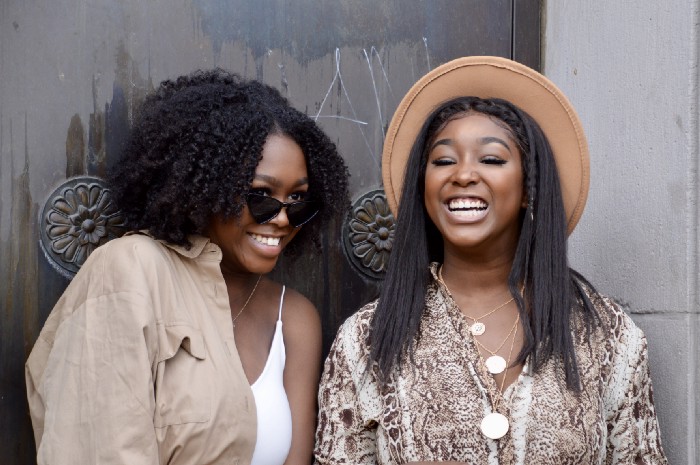
06 Aug Why Are The Brown People So Loud?
Two young White children learn that loud does not always mean angry
A lively group of people gathered at the New England home of our friend Kiara. The festive, boisterous atmosphere grew as more guests arrived for the evening’s program of devotions and fellowship. I could see only one subdued spot in the whole room. On the couch, Laura and her two children sat still and close together, creating their own little island of quiet in a sea of buzzing activity.
I had met Laura a few days earlier. She was interested in the Bahá’í Faith and had been coming regularly to meetings at Kiara’s house. Her son and daughter, who always accompanied her, were young and close together in age — maybe five and seven years old — and they never left their mother’s side. They were so physically attached to Laura at all times that I had started thinking of them as the Velcro kids.
During an earlier conversation, Laura told me she was also attending Quaker meetings. When I asked what drew her to that particular church, she said, “I just love the quiet, contemplative atmosphere there!”
And now the three of them sat like statues in Kiara’s living room. In this mostly African-American group, they were — along with me, my husband Gene, and one other man — the only White people present.
After an uplifting hour of prayers, readings, and music, people were serving themselves from the luscious array of desserts and returning to the living room to eat and socialize. In the kitchen, Kiara chatted with two of her close friends. They were very animated, and as they talked and laughed, their voices became louder and their gestures more enthusiastic.
I was seated across the coffee table from Laura, and as the kitchen conversation became increasingly exuberant, I watched her children closely. They were still securely fastened to their mother, but they looked over their shoulders anxiously at the three women. Their eyes were wide and their little mouths compressed; they hung on tightly to Mom’s arm.
“They sure are loud,” whispered the little boy. Laura was engaged in conversation with the woman sitting next to her, and she paid no attention to her son’s observation.
“Yeah, they sure are loud,” I agreed. “Those are about the loudest ladies I ever heard!”
“How come the brown people are so loud?” asked the girl. She and her brother looked really frightened.
I watched Kiara and her friends and thought about how I could help these two impressionable kids see things differently. “Well,” I said, “I guess they just love each other so much that it has to come out loudly.”
I could see their struggle as they considered my explanation. I was an adult and they wanted to believe me, but they were having a hard time. “You mean they’re not mad?” the boy finally asked.
“Turn around and take a good look at their faces,” I said. “Do they look mad to you?”
They watched the three women for a long time, and then I actually saw their grips on their mother’s arm relax.
“Hey I’ve got a great idea!” I said to them. “Why don’t we go into the kitchen and get some cookies? It looks like your mom’s going to sit there and talk all night.”
I don’t know if I really expected my strategy to work, so I was a little surprised when they both got up, took my hands, and followed me to the plates full of goodies. As they served themselves, they looked around shyly at the three laughing women. When we returned to the living room, they sat down next to their mom and ate without touching her.
At first I was unsure if I should tell Laura what had happened as she talked with her new friend, apparently unaware of her children’s feelings. But by the end of the evening, both kids were going back to the dessert table by themselves, and were even interacting tentatively with other adults. This was such a dramatic change in their behavior that it deserved some explanation.
“That’s, um, quite amazing!” Laura said. “I couldn’t figure out why they suddenly let go of me.” She gave a little laugh. “They’re normally so clingy, in case you hadn’t noticed.” She looked at her two kids, who were having a very quiet conversation with an older Black man. “Hmmm,” she said, “I need to pay attention from now on. This is very good.”
Later, when I told Kiara the story, she declared it a miracle. It was the first time she’d seen the children leave Laura’s side. To me the miracle was the sight of a young boy and girl smiling at people they’d been afraid of only minutes before.
This was one of my first and most powerful experiences with rewriting the story we’re telling ourselves. Until very recently, the children had only been in quiet, White spaces. It wasn’t surprising that they connected loud voices with anger. They could have carried that association subconsciously into adulthood and never understood their negative reaction to groups of Black people.
That evening, they realized that loud also means joyful and loving. If only it were that easy for adults to reassess their assumptions.



Nancy
Posted at 20:24h, 14 SeptemberI love this story!